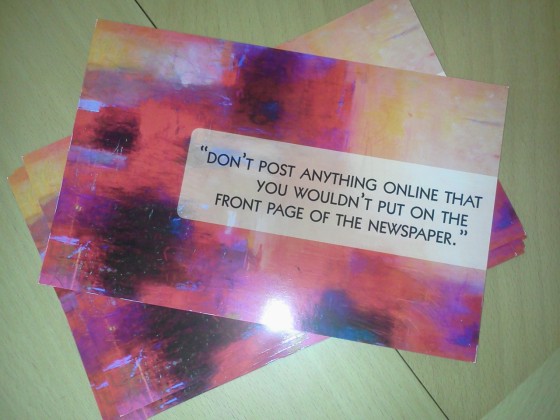
I’ve been reading up on the Jonathan Coulton/Glee controversy over Coulton’s arrangement of “Baby Got Back” by Sir Mix-a-Lot and all I can think is “What the fuck, Glee?!?”
Sir Mix-a-Lot is the artist behind the original “Baby Got Back.” When indie singer-songwriter Jonathan Coulton wanted to record a cover of it, he did the ethical and legal thing and purchased a license to use the song. Whenever he sells a copy of his version, Sir Mix-a-Lot gets a royalty payment.
The TV show Glee is about a high school glee club that does covers of popular songs. When they wanted to do a version of “Baby Got Back,” they got permission from Sir Mix-a-Lot to do it, but according to Coulton and his fans, they blatantly ripped off his arrangement without any attribution. It was likely completely legal for Glee to do this, but it was an asshat thing to do.
Here’s how copyright works when it comes to music. When a musician writes a song (think sheet music), he gets the exclusive right to copy, distribute, display, perform, and make derivative works from it. Covers are derivative works, which is why Coulton needed a license to do his own arrangement of the song. He used the same lyrics with a few modifications, but the accompanying music is totally different.
When the musician makes a sound recording of their song (think mp3, CD, etc.), he gets a separate copyright in that. In this case, Coulton may not have a copyright in the arrangement he wrote for “Baby Got Back,” but he does have a copyright in his sound recording of his arrangement of the song.
When “Baby Got Back” aired on Glee, Jonathan Coulton and his fans recognized it as his arrangement instantly, and they rightfully asked, “What the fuck?” No one informed Coulton that they’d be using his arrangement and they didn’t give him credit for it on the show. The show reportedly responded that he should be happy for the free exposure. What exposure did they give him since they didn’t give him the attribution for his work?!
Some people are now questioning whether Glee used some of Coulton’s sound recording on the show. Coulton may not have legal recourse for them using his arrangement of the song, but he would if they used his recording instead of recreating it themselves. We’ll see where the chips fall on this one.
In the meantime, Coulton is doing something totally awesome in response to this situation. He released his version of “Baby Got Back” (in the style of Glee) and he’s donating the profits to The VH1 Save the Music Foundation and The It Gets Better Project. Go buy it! (I did!)
So what’s the lesson from this: Always give an attribution when you use another artist’s work, even if you’re not legally obligated to do it.
You can read more about this story on CNN, Wired, and Forbes. Apparently other artists are also coming forward and saying that Glee did the same thing to their arrangements as they allegedly did to Coulton.
You can connect with me via Twitter, Google+, Facebook, YouTube, and LinkedIn, or you can email me.
Please visit my homepage for more information about Carter Law Firm.












